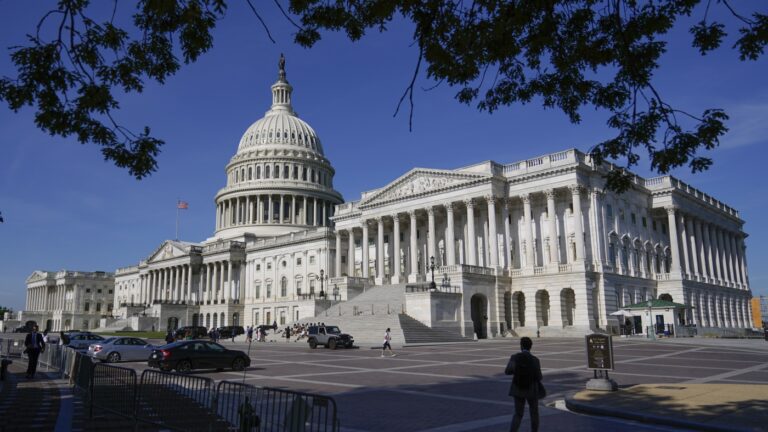Senate Moves to Vote on Trump’s Proposed Cuts to Public Media and Foreign Assistance Programs
Sun shines on the U.S Capitol dome on Capitol Hill in Washington, D.C. in 2022. Patrick Semansky/AP
Senate Scheduled for Key Vote
The Senate is preparing to vote this week on a proposal from the Trump administration to rescind federal funding allocated for public media and foreign aid programs. This decision comes in the wake of an earlier House approval, which passed with significant party alignment.
Budget Cuts Under Examination
In a recent hearing concerning the $9.4 billion in spending cuts suggested by the Office of Management and Budget, several Republican senators voiced their concerns. They highlighted the potential devastating impact on public radio and television stations in rural areas, warning that eliminating federal support could transform many communities into “news deserts.”
Ongoing Debate Among Senators
Senate Majority Leader John Thune expressed optimism that a procedural vote would pass, allowing for further debate on the matter. With only three votes to spare, GOP leaders are navigating a delicate political landscape to facilitate the passage of the measure, which aims to circumvent a filibuster.
Public Broadcasting Faces Major Cuts
The proposed cuts include a complete elimination of $1.1 billion designated for the Corporation for Public Broadcasting, which Congress had already approved for the upcoming two fiscal years. Some senators, including Susan Collins of Maine, have called for amendments to ensure support for local public media, recognizing the crucial role these outlets play in communities.
Implications for Foreign Assistance Programs
Concerns extend beyond public media; cuts to foreign aid projects, including the PEPFAR initiative established to combat HIV/AIDS, have also sparked disapproval among key Republican figures. Senators stress the importance of maintaining these life-saving programs, which have significantly improved global health outcomes.
Trump’s Stance and Future Implications
President Trump has threatened political repercussions for any Republican opposing the rescissions package, stating the need to “defund the Corporation for Public Broadcasting.” This dynamic is further complicated by differing opinions within the party, as some GOP senators express uncertainty regarding the package’s passage in its current form.
Conclusion: What Lies Ahead?
If the Senate modifies the original House package, a subsequent vote will be necessary, all while adhering to a tight deadline. Congress must finalize this budgetary action by July 18 to prevent funds from being automatically released. As debates continue, the implications of these proposed cuts will be closely monitored by both lawmakers and the public alike.
